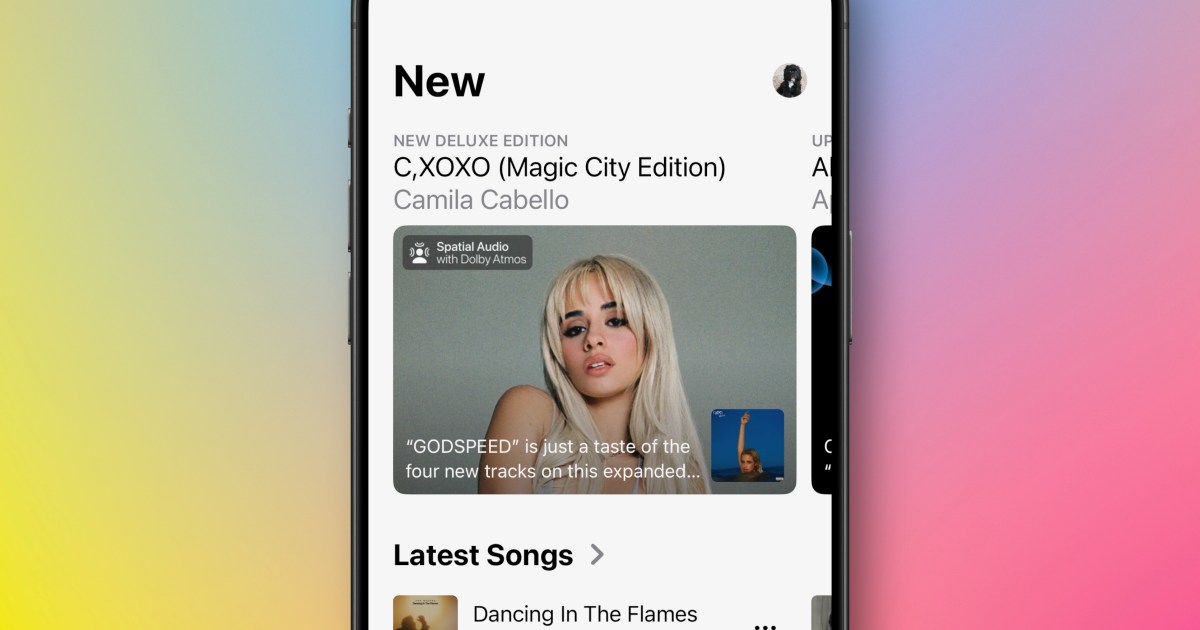Apple Music has become one of the top music streaming services globally, second only to Spotify, providing subscribers access to over 100 million songs, curated playlists, and exclusive content. Since its launch in 2015, Apple Music has consistently grown its library and features, seamlessly integrating with the broader Apple ecosystem to deliver a high-quality user experience. It has become a popular choice for music lovers and a strong competitor to other streaming platforms.
Apple Music’s pricing structure is a crucial part of its market strategy, aiming to balance affordability with its value proposition to attract a wide range of users, catering to individuals, families, and students.
Here’s how much each Apple Music plan costs:
- $11 per month for an Individual plan
- $6 per month for a Student plan
- $17 per month for a Family plan
While you can sign up for a free trial of Apple Music, if you stick with the service long enough, you will end up paying. However, Verizon unlimited plan customers have a way around this, as they get Apple Music absolutely free — more on this later.
Let’s take a closer look at what you get with each Apple Music plan.
Apple Music plans
Before we dive further into the different pricing tiers Apple Music has to offer, note that each subscription plan offers access to the same catalog of ad-free content, offline listening, Apple Music 1 live and on-demand radio shows, and exclusive releases.
Apple Music gives you streaming access to:
The main difference between the plans comes in the form of the Family membership (more on that in a bit), which lets you create up to six individual accounts in a subscription that’s billed as one flat fee per month — regardless of how many people you add on.
Apple Music Individual — $11/month
Please keep in mind the following information. Apple Music does not offer a free plan. If you are not eligible for discounts, the most basic option is the Individual subscription, which costs $11 per month. Apple also provides the option to pay $109 upfront for a year’s worth of service, which is a $23 discount. However, it’s recommended to compare this with alternative subscriptions, as discussed later in our Spotify comparisons. It’s worth noting that the discounted annual plan may not be visible until after signing up for the monthly plan and then checking the subscriptions.
Apple Music Student Subscription — $6/month
Just like Spotify, Apple Music offers all students (with a valid student email address from a supported educational institution) half-off an Apple Music membership. That drops the monthly subscription payment down to a modest $6. The offer is available only for college students at this time.

Apple Music Family Subscription — $17/month
Looking to enroll up to six people in your household in an Apple Music plan? Subscribe to the Apple Music Family plan for $17 per month. That works out to a total savings of $5 per month for two members, $15 for three, $25 for four, $35 for five, and $45 for six family members.
Apple One
You also have the option to choose an Apple One plan, which combines several of Apple’s services into several tiers of single discounted payment plans. That includes not only Apple Music but Apple TV+, Apple Arcade, iCloud+, News+ and more. Apple hiked the prices of these plans in October of this year, though. Individual Apple One plans now start at $20 per month and come with 50GB of iCloud storage, Apple Music, and Arcade, while the Apple One Family plan starts at $26 per month and adds up to five members and 200GB of iCloud storage. You can also sign up for a Premier plan that adds Apple Fitness+ and Apple News+ to the mix, as well as a whopping 3TB of iCloud storage, for $38 per month. These options may offer a lot of value if you use other Apple services in combination with Apple Music.
Apple Music with Verizon
Verizon Unlimited customers can get a six-month Individual membership to Apple Music for free. To qualify, you need to be signed up for an eligible Verizon Unlimited Plan. After six months, the cost of Apple Music will be $11 per month per line. With this subscription, you’ll have access to the Apple Music library, the ability to download songs for offline playback, and the option to stream your favorite songs over 5G, 4G LTE, or Wi-Fi.
Verizon once offered free Apple Music subscriptions to certain customers through its 5G Get More plan. However, this plan is no longer available to new customers. If you already have this plan, you can still receive a free Apple Music subscription.
Apple Music with discounted Apple Gift Cards
If you look at payment options for Apple Music subscriptions, you’ll see that you can use Apple Gift Cards, to pay for Apple Music and pretty much everything else Apple. This opens up a new method to save on your subscription by paying for it with discounted Apple Gift Cards. The key is finding them, though.
You can look for special store deals, like Best Buy’s offer to buy Apple Gift Cards. Sometimes, there will be a special promo that will include Apple Music free for four months with the gift card.
Apple Music free deals for new buyers
If you’re a new Apple Music subscriber, you should try to find deals that give you free months when signing up as a new user, purchasing specific products, etc. These deals can vary over time, but some of the top current examples include:
- Best Buy is offering a deal for up to three months, which new or returning subscribers (they get three months) are eligible for when they start Apple Music. The only thing you need to get this deal is a Best Buy account.
- Apple also continues to offer free subscriptions occasionally for new buyers of products like Macs or iPhones, as they did with Apple TV+ when it made its debut.
- Buying newer Apple headphones (AirPods, AirPods Pro, AirPods Max, or Beats) or HomePod or HomePod mini qualifies new subscribers for six months of free Apple Music. Older generations, such as first-generation AirPods and some Beats models, are not eligible.
How Apple Music compares to the competition

Spotify not only has the lead over Apple Music when it comes to global reach, but in the United States, it resumes its lead over Apple Music with its 239 million Premium subscribers worldwide (as of Q1 2024), compared to Apple’s 93 million as of June 2023. But still, Apple is by no means a slouch, offering 100 million songs, 30,000 playlists, and best-in-class human-run radio stations along with other exclusive content, giving it an extensive fan base in America.
Music and podcast selection
Spotify reigns king over Apple when it comes to its enhanced music-discovery tools, but its library is somewhat more limited (although that difference is narrowing). Many eclectic music lovers will appreciate Apple Music’s broader catalog. While Apple has exclusive releases and live radio stations, Spotify tends to have more popular podcasts and has been pushing human-curated playlist content to counter Apple’s live stations. Both services also allow for any streaming track to be downloaded offline for later listening.
Some feel that Apple’s playlists are a bit more in-depth and personalized than Spotify’s and other major streamers such as Amazon Music or YouTube Music, which, if we’re honest, both kind of take more than a few pages from Spotify’s design playbook. Apple Music’s 2021 update added hundreds of new human-curated playlists for moods and activities, making it a lot easier to find a playlist for just about anything, from dinner parties to a creative drawing session to snowboarding. Apple also added enhanced Siri abilities when you tell the assistant, “Play more like this.”
Free version
Of the two top competitors, Spotify remains the only one with a free version available, which still allows users to play on-demand tracks (with some limitations on mobile devices but none on desktop) in exchange for ads. That makes it an easy choice if you don’t want to pay anything for your music service. Apple Music used to have its $5 per month Voice option as its least expensive, but the company axed it. Amazon Music Free, Deezer, and YouTube Music also offer free, ad-based options as well.
Sound quality
If audio format and quality are important to you, Apple is clearly at the head of the pack when compared to Spotify, whose long-rumored hi-res tier is still a no-show. That said, Apple Music is no longer one of the few hi-res lossless games in town, with pretty much every other service, including Tidal, Amazon Music Unlimited, Qobuz, and Deezer offering lossless audio, which starts at CD quality (16-bit at 44.1kHz) and goes up from there depending on the service. If this is a game-changer for you, here’s how they all compare:
- Apple Music: AAC, ALAC formats at up to 24-bit/192kHz, as well as Dolby Atmos Music
- Tidal HiFi: AAC, ALAC, FLAC formats at 16-bit/44.1kHz (HiFi) and 24-bit/96kHz (HiFi Plus), as well as Dolby Atmos Music.
- Deezer Premium: FLAC format at up to 16-bit/44.1kHz
- Qobuz: AIFF, ALAC, FLAC, WAV, WMA Lossless formats at up to 24-bit/192kHz
Frequently Asked Questions
What’s the cheapest way to get Apple Music?
The cheapest way to get Apple Music is to make use of its free trial offer: you can get one month free by signing up directly with Apple Music. Finally, buying new Apple headphones qualifies new subscribers for six months of free Apple Music.
Is Apple Music really free for three months?
Yes, you really can get three months of Apple Music for free. When you buy a new iPhone, AirPod, HomePod, or Beats product, the company will throw in 3 months of its streaming service in for free. You can use your free subscription to stream Apple Music across all your devices.
Read the full article here














